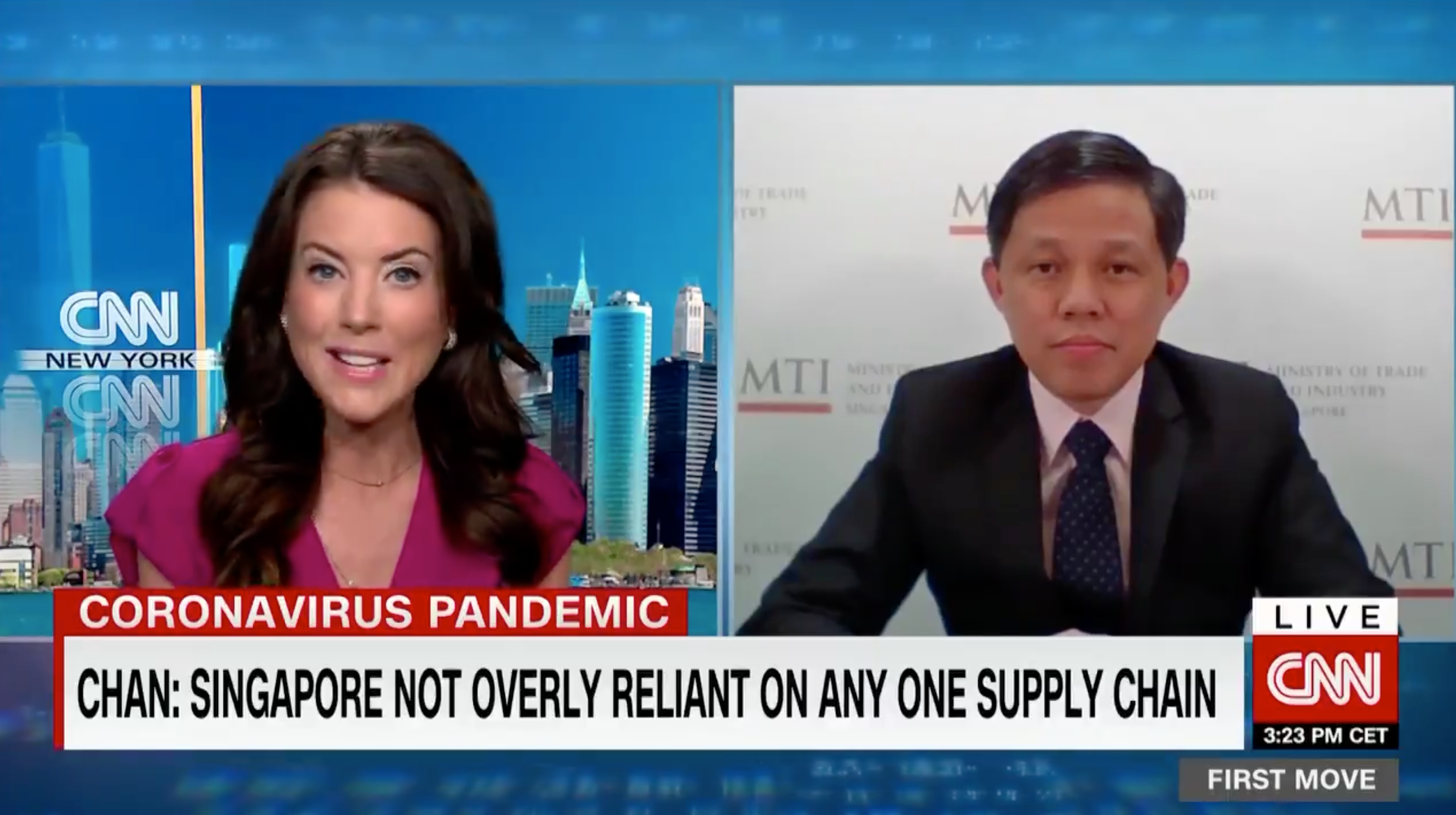Singapore — In a recent interview on CNN International, Minister for Trade and Industry Chan Chun Sing was asked why Singapore chose to hold elections, slated for July 10, during a pandemic and when facing challenges on the economy.
Mr Chan replied that “we are not going back to a pre-Covid world and, without a vaccine, it it also quite unlikely for us to get into a post-Covid world”.
He said: “So, all of us will have to learn to live in a Covid world to take care of our fellow citizens, their health, their well-being and their livelihoods. And at the same time, we must also learn to live in a Covid world while upholding our democratic system and ideals.”
As for growth expectations and downside risks in Singapore, Mr Chan said that there were a quite a number of issues that it currently had to address, such as the health of the people, and how its economy recovered in tandem with the rest of the global economic recovery. However, the biggest concern would be a second or recurring wave of infections impacting the economy.
"The long term competition will be defined by which is the more innovative economy, which are the more creative people," Chan Chun Sing, Singapore's Trade & Industry Minister @MTI_Sg weighs in on US-China trade tensions, the future of #HongKong & holding elections during #covid19 pic.twitter.com/QhdMqqQTgE
— Julia Chatterley (@jchatterleyCNN) June 25, 2020
“We are dealing with a few crises at the same time,” he said. “There is a severe demand and supply shock to the global economy. There’s also the breaking down of the global connectivity in terms of air and sea freight. Many of the small businesses are facing both a cash and credit crunch”. All these, he said, would have a compounding effect on each other.
In addressing a question on supply chains and whether Singapore was making changes and identifying areas of vulnerability, Mr Chan said the country had always diversified its economy and supply chains and that its fundamental belief was never to be overly-reliant on any particular market or any particular source of supply.
He noted that if US companies and even Chinese companies relocate their operations, Singapore would be able to play a meaningful part as a business hub, financial hub and data hub to support all the operations of the global multinationals.
As for the US-China trade issues and whether they would impact Singapore, Mr Chan said that their competition was not a zero-sum game and that there were areas in which they needed to cooperate, such as upholding the global trading system and the situation in North Korea. But there were also other areas in which they would compete, such as market access and technology.
He said at this point in time the US-China relationship was not defined just by the current account deficit or surplus. /TISG

